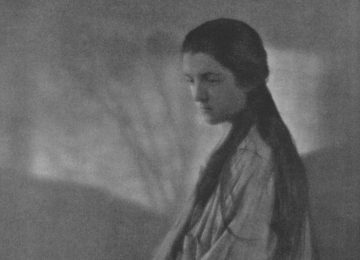Cathy Young in Quillette:
 Vladimir Nabokov, whose 120th anniversary we mark this Spring, remains one of the 20th Century’s most acclaimed and enduring writers. He keeps turning up on various Greatest–Books lists, often more than once—for the novels Lolita and Pale Fire, as well as his autobiography, Speak, Memory. And yet in this day and age, Nabokov is clearly a “problematic” fave. Not only is he a dead white male of privileged pedigree, but the novel that made him a literary star is, in the scolding words of feminist essayist Rebecca Solnit, “a book about a white man serially raping a child.” What’s more, Nabokov, a Russian-born refugee from both Communism and Nazism who died in 1977, made no secret of his contempt for both progressive political causes and literature as a means to advance them. He was politically incorrect avant la lettre.
Vladimir Nabokov, whose 120th anniversary we mark this Spring, remains one of the 20th Century’s most acclaimed and enduring writers. He keeps turning up on various Greatest–Books lists, often more than once—for the novels Lolita and Pale Fire, as well as his autobiography, Speak, Memory. And yet in this day and age, Nabokov is clearly a “problematic” fave. Not only is he a dead white male of privileged pedigree, but the novel that made him a literary star is, in the scolding words of feminist essayist Rebecca Solnit, “a book about a white man serially raping a child.” What’s more, Nabokov, a Russian-born refugee from both Communism and Nazism who died in 1977, made no secret of his contempt for both progressive political causes and literature as a means to advance them. He was politically incorrect avant la lettre.
And so it is not surprising that anti-Nabokov rumblings have been bubbling up in recent years. They include Solnit’s widely praised 2015 essay “Men Explain Lolita to Me,” in which she wrote about being lectured by males online after daring to question the misogynistic literary canon. (That piece, as I pointed out in a review of Solnit’s essay collection, is based on a fraud: Solnit’s chief mansplainer turned out to be a woman with a gender-ambiguous name who was not lecturing Solnit, but was talking to someone else in a Facebook group. When caught out by commenters, Solnit made surreptitious face-saving edits such as changing “this man” to “this reader.”)
While Solnit offered the disclaimer that “I had never said that we shouldn’t read Lolita,” she clearly seemed to include it among books that treat women as “dirt.” Some got the message. Author, editor and literary publicist Kait Heacock wrotethat, partly due to Solnit’s essay, she has decided to “break up” with her once-beloved Lolita because she will no longer support literature “built on the backs of young girls.”
More here.
